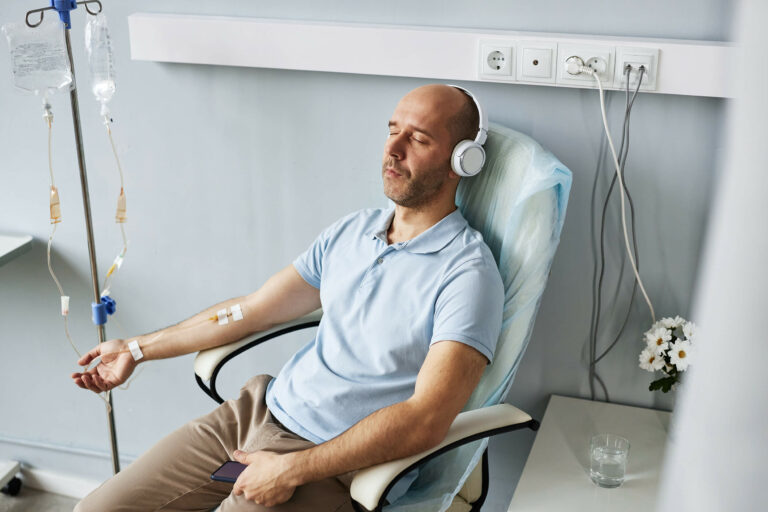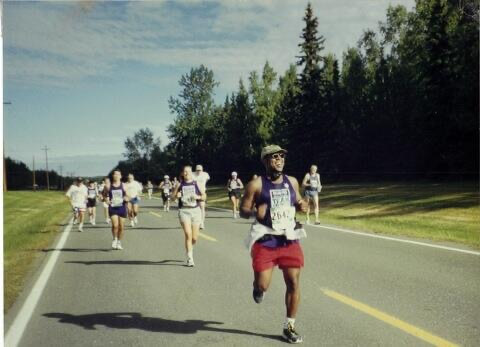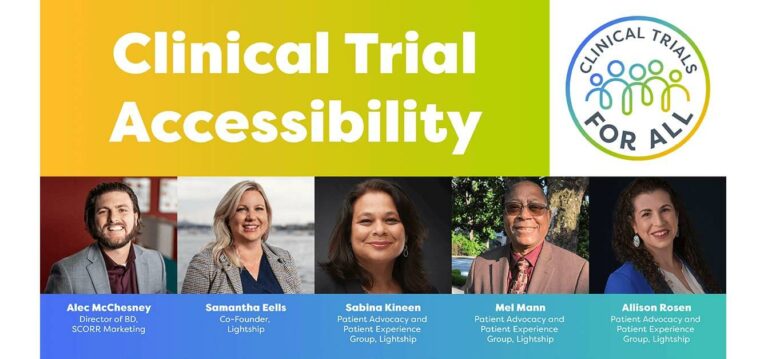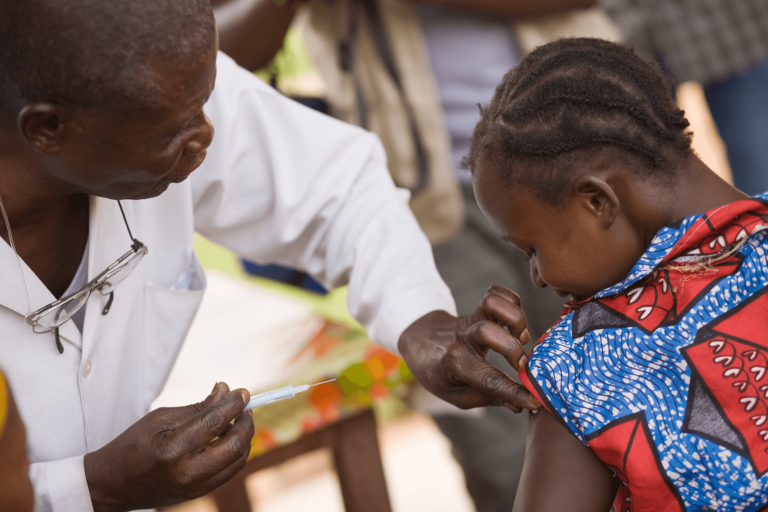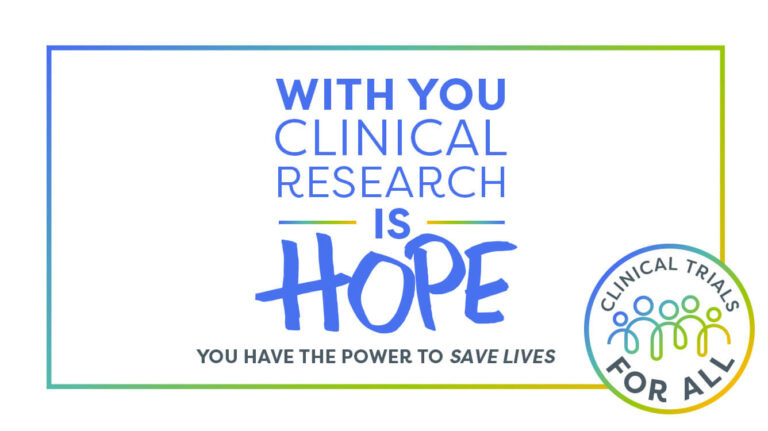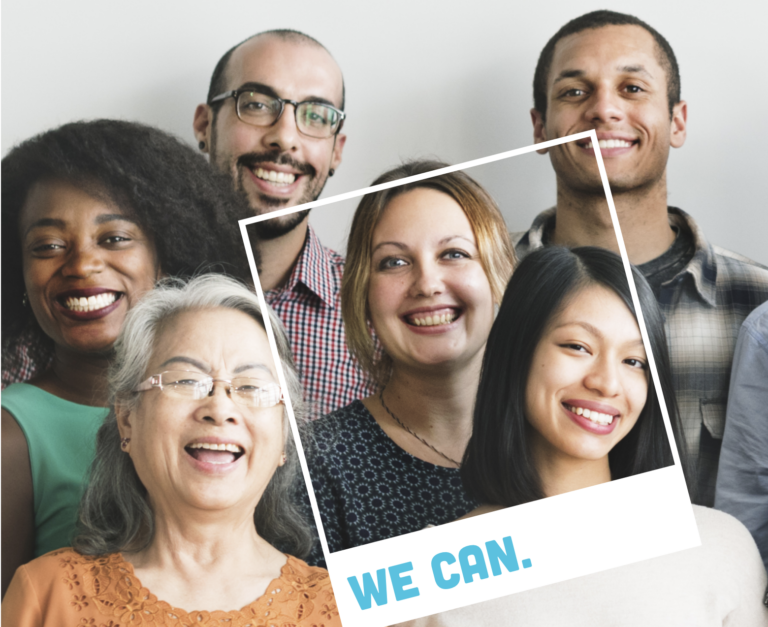In 1994, I was a 37-year-old Army major stationed in Michigan with my wife, Cecelia, and our five-year-old daughter, Patrice. Little did I know that learning how to participate in clinical trials would save my life. One morning before heading to work in January 1995, I went to the doctor’s office to get results from an MRI I had because of persistent back pain, which had been bothering me for six months. The doctor told me I had chronic myeloid leukemia (CML). He gave me three years to live. He then explained that the only potential cure was a bone marrow transplant. But, as an African American, my chances of finding a match were slim. There were — and still are — few people of color on the marrow donor registry. I took it upon myself to change that. I started organizing marrow drives, visiting churches, malls, colleges, and military bases nationwide. In December 1995, I relocated to Atlanta, Georgia, and continued my efforts. In April 1996, at a marrow drive in Columbus, Georgia, a local businessman with a different type of leukemia approached me. He shared his leukemia story, explaining how an experimental treatment at the MD Anderson Cancer Center in Houston had saved his life. He urged me to visit MD Anderson, so I did. I flew to Houston and met a doctor who enrolled me in a few experimental treatments. But by 1998, after three years, they stopped working. I became extremely fatigued, waking up exhausted and in pain every day. Despite organizing and participating in numerous marrow drives, I had not found a matching donor. Time was running out. As a last resort, I asked my doctor about any other drugs that could help. He mentioned a potential drug that was still in its pre-clinical trial stage. When it was approved for use in humans, I entered the Phase I clinical trial for STI571. I responded exceptionally well. Nine months into the trial, I ran a 26.2-mile marathon in Alaska! Five months later, I cycled 111 miles in Tucson, Arizona, raising funds for leukemia research. Three years passed, and in May 2001, the FDA approved STI571 as Gleevec. Among the hundreds of thousands of lives Gleevec has saved, I am the longest-living survivor. In the decades since, I got to see my daughter grow up, attend Harvard University and Emory Medical School, and become a doctor. I’ve celebrated birthdays and wedding anniversaries and been there for every special moment, all because of a clinical trial. The doctors gave me three years to live. It’s been nearly 30 years — and counting. What Does This Have to Do With You? Gleevec was the first tyrosine kinase inhibitor (TKI) cancer treatment. Now there are 80, seven approved in the last year. I am humbled and honored every day to not only be alive, but to have helped change the cancer treatment game. Being part of something bigger than myself — the clinical trial — felt so good that I decided to dedicate my life to clinical research education and patient advocacy. Because the more people know about clinical trials and how to find a clinical trial, the more lives will be saved today and in the future. Maybe by telling you my story, you’ll be inspired to be part of something bigger than yourself, too. How to Participate in Clinical Trials Clinical research is different from what it once was. Back when I was in the Gleevec trial, I did everything by myself. I had to find a place to live in Houston where I stayed for three months, and then find my way back to Houston every 90 days for about three years. These days, there are patient advocates, support services, and more, all dedicated to making research participation as easy as possible. Despite the differences, there are things that hold true. To participate in clinical trials, you need to know the benefits, do your homework, and start your research journey as soon as possible. In addition, you can enter a trial in a later phase and can withdraw from a trial without penalty. Know the Benefits of Clinical Trials Clinical research is essential! Every prescribed drug in your medicine cabinet has gone through a clinical trial. Clinical trials provide treatment at least equal to the current standard of care. When you’re a clinical trial patient, you not only access the newest care (often for free), but you also get the chance to contribute to the future of medicine. This is especially true for patients of color. Many racial and ethnic minorities aren’t well-represented in clinical research, so it’s even more important for us to step up and participate. In fact, new regulations have been introduced in the industry that put requirements on patient diversity. Otherwise, tomorrow’s treatments won’t be as effective for everyone. Do Your Homework Your doctor may not offer clinical trials unless you ask. You need to do your own research so you can talk to your providers about trial options. Luckily, there are an abundance of clinical trial resources out there, from advocacy groups to government websites. You should research clinical trials even if you’re healthy or happy with your current treatment. First, many trials need healthy volunteers. Second, a clinical trial might not offer you a better outcome or prognosis, but it may help your quality of life or help educate you on your condition. Start Now Trials move slowly, but they go fast once they get going. I first heard about clinical research 18 months before the Gleevec trial. If I hadn’t known to ask the doctor in Houston, I would have missed out. Don’t wait. Begin your research, get on lists, and talk to your doctor now. Turn 3 Years Into 30 My biggest takeaway on how to participate in clinical trials? Leave no stone unturned. If you’re not trying clinical research, you haven’t tried every option. Perhaps a clinical trial won’t mean the difference between life and death for you, but it might make a difference in your quality of life. It might mean survival for someone else today, tomorrow, or in 30 years. I invite you to be part of something bigger than yourself by exploring the resources on Clinical Trials For All to learn more about clinical trials or helping us spread awareness.
